Participants 2017
Participants
Grigorii Akhmanov
Chief Scientist; Project Leader. Associate Professor of the Faculty of Geology of the Lomonosov Moscow State University; director of the UNESCO-MSU Training and Research Centre for Marine Geology and Geophysics; head of the UNESCO Chair of Marine Geology; member of National Oceanographic Commission of Russian federation
I am involved in marine investigation since 1993. Last three years Baikal is in the list of my most loved seas to go. Many times I have participated in different geological and geophysical marine expeditions, mainly in the seas of Atlantic and Arctic oceans. I took part in my first expedition, being a student of UNESCO-MSU Floating University. Nowadays I mostly participate in expeditions, taking responsibilities of Chief-Scientist or Deputy Chief-Scientist.
In our, already the third expedition of the Class@Baikal project I will be Chief Scientist as well. It means that I will be responsible for a co-ordination of the work of all teams of the expedition, I will take care for the best combination of training and research components of the cruise, I will plan a post-cruise processing of the data collected and, already, think and prepare the Fourth expedition of the project.
I am very pleased with results of previous expeditions of the project and with a development of the project in general. Only for two years we have overpassed the distance from the first shy steps to real discoveries and even certain specialization in studying geology of this great lake. The project gets own shape, trying to fit on the system which, for years, was being elaborated by UNESCO-MSU Floating University, legendary training-and-research programme in the field of marine sciences. I am very happy that these “shoes” (definitely, working shoes) of older brother are of good fit for us yet. I like very much scientific results – the phrase “for the first time” is in use in our reports, presentations and publications more and more often and always reasonably. I like that our students work with enthusiasm on the collected data also after the cruises, they feel a test of Science – many of them presented their works on scientific conferences (including international ones) and even were awarded with diploma and prices for the best student presentation. Young team of colleagues and friends is formed very naturally, in a course of the joint study. The Class@Baikal students discover own inter-disciplinary links, they help each other in laboratories and interpretation offices, they make common plans for future joint research – this is a basement of their future great scientific achievements.
Previous Class@Baikal expedition was remarkable for series of new intriguing objects, which were suggested to be included in a field of our interests by our kind guide into the geological World of Baikal, Oleg Khlystov, an expert from Limnological Institution of SB RAS, co-chief scientists of our expeditions. One of them is the Bolshoy mud volcano, where a unique combination of recent geological processes can be observed, and very interesting sedimentological analysis and genetic reconstructions can be made. Another is mysterious seep “St. Petersburg”, a “hard nut to crack” even for very experienced scientists. Amazing, large landslide in the “Krasny Yar” area – a good field for joint interdisciplinary work of sedimentologist, geochemist and engineering geologist. And many other objects. All brought to us a real pleasure to examine them during the expedition and afterward. During the cruise we had also several very interesting days of “hunting” for channels of the Khuray deep-water system. The beginning of scientific exploration of this system is a merit of the First Class@Baikal expedition. The system got own name in that expedition. And in 2015 we were working already on “our” object, thus, the dearest for us. And that was great!
Every year we learn a lot during our expeditions. On Baikal Lake we learn also some “baikalian” peculiarities of marine geology. Any scientific experience is always priceless, of course. But managerial lessons of every expedition are also very important. One of such lessons from previous Class@Baikal expedition is that our cruise legs should not be too short. It is very useful when a cruise can be subdivided into several parts (legs). But the shortest leg has to be not less than 6 days. On the contrary, very positive experience of the previous expedition is an experience of intensive using of the acoustic profiler not only during formally geophysical legs but also during legs fully focused on bottom sampling.
Also, in 2015, after the cruise we got an opportunity to stay all participants together in Listvyanka for a couple of days to be concentrated “hot on the trail” on initial scientific report preparation. It was a kind of on-shore continuation of the expedition. All together we were interpreting our “fresh” data, discussing and analyzing what we have obtained during the cruise. Already in two days we even have managed to organize a small conference/workshop where some experts from LIN SB RAS and Irkutsk technical university were invited to. Our Class@Baikal students presented their first talks on Baikal. This was an extremely important start for them, which was responsible for future success of analyses of obtained material. Very positive experience which we are going to develop.
Every day of an expedition is unique! Every day is worth to be appreciated in gold! Till now our “gold” was of the highest fineness. And the experience of two expeditions is already a “Gold Reserve”. We will try to increase this reserve during our Third Class@Baikal expedition. How are you, Baikal! We were missing you for year!
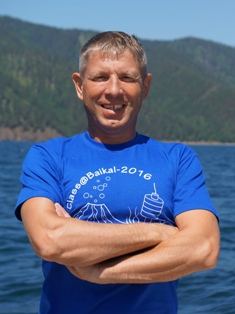
Khlystov Oleg
Chief Scientist. Head of the Laboratory of Geology of the Lake Baikal, Limnological Institute of Siberian Branch of Russian Academy of Sciences.
My interests: geology, marine geology, relaxation, family, activity holidays, skis, etc.
Have you already been in sea expeditions? Yes. It is my 26th field season. I was two times in the Sea of Okhotsk (2004), once in the Mediterranean Sea (2016)
What will you do in this expedition? (your tasks) The management of expedition, bottom sampling, sediment temperature measurement .
Are you been encouraged by results of last year expedition? Yes and no. We could work more and better in the geophysical leg.
Write, please, about the day/situation/moment which was been most remembered for you from the last expedition.
The previous expedition to Baikal was remembered by new people, new methodologies. In general we had a lot of good interesting moments, very difficult to put first things first.
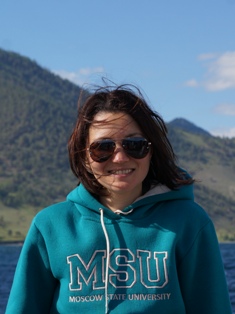
Svetlana Korost
Head of geological group. Researcher of the Department of Petroleum Geology and Geochemistry, the Faculty of Geology, the Lomonosov Moscow State University
I'm interested in the petroleum lithology and the sedimentology. I am engaged in studying of rocks which were formed millions years ago, in restoring the history of their accumulation and transformation. However only understending of contemporary processes happening on the Earth can help to explain the past
In this expedition my main task is a coordination of work of geological team. I'm going to participate in the process of bottom sampling, to help to students descript sediments. I participated in the last expedition Class@Baikal - it was amazing experience. For many participants the results of expedition-2015 were usefull for writing their graduation works.
It is very complicated to put attention to one moment from expedition, they were a lot: fresh air, pure water, burning ice, amazing «omul» (kind of fish). But one I know for 100%, I will use all possibility to come back to Baikal.
Jeffrey Poort
Expert, Geological group. Senior Researcher at the Institute of Earth Sciences in Paris (ISTeP), University Pierre et Marie Curie (UPMC), Sorbonne Universités, France
I am a marine geologist at the University Pierre et Marie Curie (UPMC, Sorbonne Universités) in Paris, France. My scientific interest is on geothermal processes in sedimentary basins, from lithosphere scale to local fluid related processes. In my free time, I love to spend time with my family, go to concerts and sit with a good Belgian beer on a Paris terrace. During the Euro and World soccer tournaments, I love to watch the games with friends and support the Belgian, Russian and French national teams. I have participated in many expeditions around the world, such as in the Sea of Okhotsk, the Black Sea, the Mediterranean Sea and the Caraibean Sea. On Lake Baikal I have participated more than ten times, and it is one of my favourite places and certainly one of the most beautiful places in the world.
During the Class@Baikal-2016 expedition, I will focus on the particular thermal field near seeps, mud volcanoes and gas hydrate deposits. I will attach temperature sensors on the gravity corer and try to measure the thermal gradient in the sediments. The purpose is to better understand the migration and expulsion of fluids and gas and the formation and dissociation of hydrates.
I really enjoyed the previous Class@Baikal-expeditions, which I think were a great success for science and for training. We got some new ideas on seep dynamics which we presented on different international conferences (EGU, AGU, MARESEDU, etc.). The participating students have always been very motivated, and the training team very professional.
There were a lot of memorable and intense moments during the cruise of 2015 (first hydrates of the cruise, first rhizon fluid extraction test, bottle skating disco, celebrating THP measurement nr. 100, etc.), but my favorite is still the picnic at the end of the expedition, a joyous moment together on the beach of lake Baikal with a short swim in the cold water.
Adriano Mazzini
Expert, Geological group. Senior Researcher, the Centre for Earth Evolution and Dynamics (CEED - University of Oslo)
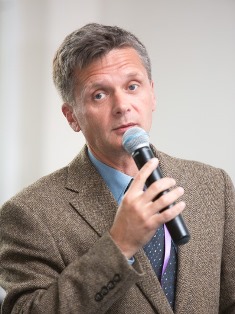
Loktev Andrei
Expert of the engineering-geological group. Graduator of Rostov State University. Chief geologist of the Center of Marine Investigation (Moscow State University), expert of Rosprirodnadzor, Rostechregulirovanie (state environmental organizations) and ISO for marine soil survey.
I am a fan of travelling and active life, including skiing, fishing, hiking, cycling etc. And like to explore something new: new countries, towns, places, cuisine, culture… As well as fish soup (ukha) at open fire and tent but would drink a glass of cold Chablis or Gewuirztramminer and very soft Gorgonzolla with grapes at the similar pleasure….
By the way, cheese consistency and especially Gorgonzolla, is an important characteristic of its quality and taste. And I do consistency investigation but a substation called Soil, professionally. Soil is a natural product that we can see just under foot (or at sea and lake bottom…). So we can find many links between our life and business.
I performed marine soil investigation almost 30 years in the Arctic seas and around whole of the world. And had started marine investigation and my trips since 1986. The main topic of the business – engineering geological (geotechnical) investigation for design of offshore constructions (oil and gas industry predominantly). Russian and international methods and technics of marine survey, western and local standards comparison are the main topics of my professional interest. Because of the interest, I take part at standardization process (participant of Russian and international technical and expert committees preparing industrial standards).
Being an active participant of the expedition Class@Baikal I can teach and provide some new skill to students hopefully. The skill on geotechnical parameters and properties of soil and soil section would be useful for them even if they are not going to do design and foundation engineering and it is not going to be their future profession. They might need the knowledge being involved in oil and gas business even for some general issues. Finally, any new knowledge is always useful and welcomed, and we are still alive as soon as recognize something new… And again if lithologists, geologists obtain some “new” parameters they can get extra information on local geology, stratigraphy and origin of Baikal sediments hopefully. So new knowledge into the Baikal coin box….
I did dream to visit the sacred place. Many thanks to the project organizers and Grigorii Akhmanov personally. It was marvelous team onboard, a group of students and experienced specialists worked together harmoniously. The Lake-Sea is amazing and I liked very much its waters, nature, people… and omul fish. And again on gastronomy and Baikal… a lucky man tasted so called “raskolodka” (frozen and hammered local fish, eaten with pepper and salt and vodka of coarse…). Perfect, delicious and very simple. Well, hope to come here again.
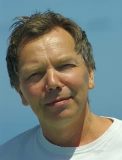
Roslyakov Alexander
Research associate of the Department of Lithology and Marine Geology , Faculty of Geology, Lomonosov Moscow State University. Chief geologist of Seismic Data Analisys Center (Moscow State University).
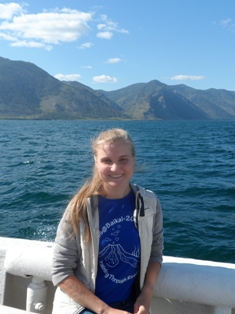
Solovieva Marina
Leader of Geophysical team. Geophysicist of MSU Seismic Data Analysis Center.
I am a geophysicist-interpreter of MSU Seismic Data Analysis Center and the master of geology (specialization is marine seismology). I became interested in marine research in 2013, when I was preparing for geophysical expedition to the White Sea. Since then, I have been actively studying submarine geological processes using seismic methods, gradually exploring more of the geological side of these investigations. The most interesting fields for me are near-surface processes: landslide processes, mud volcanism, neotectonics and other.
In my free time I like to travel around the interesting areas of Russia: from Kaliningrad to Baikal and from Caucasus to Murmansk. I am visiting Baikal for the eight times, and this expedition will be my fifth one to the Baikal Lake. Also I participated in expeditions to the White Sea three times before and to the Teletskoe lake, so I have significant experience of marine seismic research.
In this expedition, my main task will be a coordination of work of geophysical team, planning profiles position, data quality control and interpretation of obtained data. In the second part of expedition I will plan points for bottom sampling, basing of obtained data and earlier materials.
In three previous Class@Baikal expeditions a significant amount of geological and geophysical data was obtained, which helped me to prepare and successfully defend a master's dissertation and to participate at several international conferences. In addition, in these expeditions I have obtained invaluable experience observing the work of the geologists and sampling process, saw the mysterious gas hydrates for the first time, touched the Baikal bottom and discovered its structure.
I'm sure that the upcoming expedition will be as interesting and informative as the previous ones, and Baikal will bring new surprises!
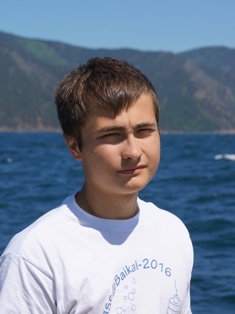
Kudaev Artur
Leader of Sedimentological team. Undergraduate student of the Department of Petroleum Geology and Geochemistry, the Faculty of Geology, the Lomonosov Moscow State University
My name is Kudaev Artur Alievich. I'm a master student of Geology faculty in Lomonosov MSU. My specialty is valued primarily as an applied science, however, thanks to the three-year experience on the Baikal Lake, self-treatment of the large collection of data and the support of my teachers my scientific work may be a grain of fundamental science.
This year expedition studying the Krasniy Yar landslide, the conditions for its sustainability and the causes and character of its development. In addition, within the framework of my research will be the signs of discharge of hydrocarbons into the water column. Part of the development plan of the expedition was entrusted to me. The complex of obtained data, according to preliminary estimates, is built into the model environment of sediments have potential counterparts in the waters of the world, including within the oil and gas fields.
This year among the participants of the expedition have guys in training which I attended, and the guys who trained those I taught. This continuity, transfer of experience, even at such a large scale, is very important, according to the traditions of the Floating University, and I am proud to have this opportunity.
Calm. The Middle Of The Lake. The ship at anchor. Sunset. The sky is blue. The horizon is not observed. This landscape is not forgotten. And on the shore of the mountain pine. And before the pier smoked omul - yummy.
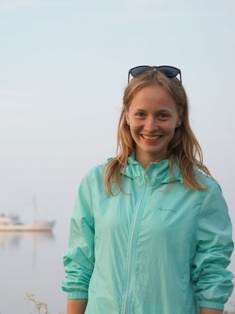
Kislitcina Ekaterina
Geochemical team. Bachelor of geology , the Faculty of Geology, the Lomonosov Moscow State University, specialization "Geology and geochemistry of oil and gas"
I am bachelor of geology. My specialization is "Geology and geochemistry of oil and gas". The sphere of my scientific interest is geology petroleum geochemistry and geochemistry of hydrocarbon gases in particular. In addition to studying, I play the violin, but I consider singing is my main hobby. I also fond of taking part in the organization of different events, both at the university and "United Space" organization.
During the expedition I will study geochemistry of hydrocarbon gases and will take part in sampling process and in extraction free gas from the sediments for its further learning in the laboratory at Moscow State University.
During the last year I took part in various conferences, where she performed scientific works on the study of Lake Baikal. The obtained solid volume of geological and geochemical data helped me to prepare and successfully defend the bachelor's work. And, of course, thanks to last year's expedition, I saw Lake Baikal with my own eyes! A real miracle!
I remember the expedition with the beauties of Lake Baikal, priceless experience and very friendly team! Once we saw a real seal in the distance!
Balakin Igor
Sedimentological team. Bachelor of geology , the Faculty of Geology, the Lomonosov Moscow State University, specialization "Geology and geochemistry of oil and gas"
My name is Balakin Igor and I am a student of Lomonosov Moscow State University. I love geology and spend most of my free time studying it. I like study rocks, because they are a unique natural indicator of the environments and conditions, that existed on the Earth millions of years ago.
A geologist is both a historian and an investigator. As a historian, a geologist restores a sequence of events, that lead to the structural and textural features of the rocks that he can observe at the present time. As an investigator, the geologist tries to establish the reasons leading to the formation of these features. With this reason, marine geology is a particularly interesting science. Submarine processes are not accessible to direct study: i.e. we can’t observe what happens at depths of hundreds and thousands of meters under the water column without the use of special equipment. When you studying underwater processes, you often have to use not only logic, based on certain data, but also intuition. It is the most interesting to me to imagine and imagine the moment of sediment formation and, subsequently, rocks.
This year I graduated from the Bachelor's Degree and entered the 1st year of the Master's program. The field of my scientific interests is the area of the mud volcano Bolshoy of the Lake Baikal. Regarding it as key-site I try to establish the dependence of gas hydrates presence in sediments of different lithological composition, to reveal litho-facies (landscape-facies) sedimentation zones and to establish sources of denudation of material in study area.
I participated three expeditions, two of them were conducted on Lake Onega in Karelia, and another one was on Lake Baikal, where I managed to visit last year, visiting one of the most beautiful places which I’ve ever seen.
I will be a member of the sedimentological group. We will describe obtained bottom samples and primarily identify their features of sedimentation. Also, my duties will include training new members, who are going to Baikal this year for the first time, to everything that my older colleagues taught me last year.
This year I will go to the expedition for the second time.
I am only partially satisfied with the results of the last expedition: there are still many unresolved issues in which I will certainly try to finish during forthcoming expedition.
Expedition Class @ Baikal-2016 was remembered to me by the well-coordinated work of our team; we managed to do a lot of work. There were also many interesting moments: magnificent colorful sunsets, funny stories, jokes, joy and relaxed atmosphere. We had a very good leader - Akhmanov Grigorii., who in every possible way helped us and explained how to act properly in a complicated situation.
In my opinion, knowledge and experience, which I gained during the expedition, were useful to me.
Most of all in the expedition Class@Baikal-2016 I remember the day, when we picked up gas hydrates from the bottom of the lake. It was very unusual to watch the ice burning. This is an amazing phenomenon, which attracted my interest throughout all the further work on the ship.
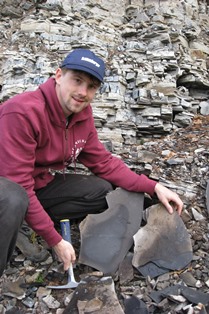
Myatchin Oleg
Sedimentological team. Graduate of the Faculty of geology of Lomonosov Moscow State University
My name is Oleg, I’m graduate of the Faculty of geology of Lomonosov Moscow State University. I interpret geological and geophysical data to find new perspective prospects. I got into geology at school during my education at the Geological school of MSU, and since that time I can’t imagine my life without geology.
I have never been to marine expeditions but I have gone to fieldtrips and expeditions to different regions of our country – Crimea, Taman peninsula, Polar and South Urals, Bashkortostan, Caucasus, Carelia, Timan, Baltic coast. I’m fond of expeditions and try to use any chance to take part in them. The romance of fieldtrips, marvelous views, feeling of partnership, new discoveries and pleasant fatigue after proper work – all of these factors are very attractive.
Baikal is the place that I wanted to visit. It’s wonderful that this trip isn’t excursion but it is a real geological expedition with interesting and actual scientific tasks.
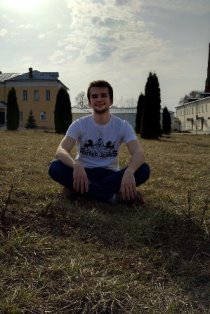
Vladimirov Arseny
Sedimentological team.Student of the Department of Petroleum Geology and Geochemistry, the Faculty of Geology, the Lomonosov Moscow State University
When I first heard about the possibility of working on a Baikal, I was very enthusiastic about this expedition, because before that I had never had the experience of such practices. Moreover, it is rare that there is a chance to participate in marine practices. The fact that already in the 3rd studying year I have such a chance is a great success. The main purpose of teaching in Baikal practice is to get acquainted with real science.
For me, Baikal expedition is not only an opportunity to determine the directions of interest to me in geology - I am attracted to the very idea of persistent and fruitful work in a short period of time in which both students and teachers do a common cause.
My duties will include studying and degassing precipitation samples, as well as further systematizing the results.
Besides studying, I'm interested in a lot of other things: from football and beer to reading science fiction and postmodern literature. I believe that the main qualities necessary for a modern person are inner decency and the ability to listen to other people.
Baikal always shook with its nature. Still, this is one of the most fabulous places on our planet! I hope that the results of the expedition, for me and for the whole team, will be amazing.
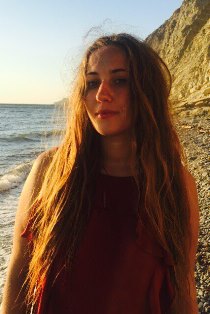
Belyaeva Alina
Sedimentological team.Student of the Department of Petroleum Geology and Geochemistry, the Faculty of Geology, the Lomonosov Moscow State University
My name is Belyaeva Alina Anvarovna. I am a 3rd year student of the Geological Faculty of the Moscow State University, Department of Geology and Geochemistry of fossil fuels. In my free time I like playing musical instrument - especially accordion, and also reading classic literature. I really love traveling, that's why I have a dream to visit as many countries as possible.
I learned about the expedition to Lake Baikal in the first year of studying. When I was second year student, I looked at my boyfriends work, who was studying the structure and composition of the sedimentary deposits of Lake Baikal. I was so intrigued I decided myself to understand how it works. I learned a lot about Baikal, but some information I have learned only during the class @ baikal expeditions. These classes attracted my attention, so I decided to join marine geology science.
Now I had an opportunity to visit a marine expedition. I want to breathe fresh air and experience something absolutely new, with students and teachers, who have already visited expeditions on Lake Baikal.
I expect to experience the romance of fieldwork, to understand "how is it?" to learn the mysteries of the abyss of nature, to gain experience in unusual conditions. By the way, I already work at the university on the department of geology and geochemistry of fossil fuels. My colleges and I work on project of studying marine bottom sediments.
As for mee I am going to make a significant contribution to the expedition, to take seriously the processing of data and, as a result, to publish my works on the topic related to the sedimentary systems of Lake Baikal in scientific publications.
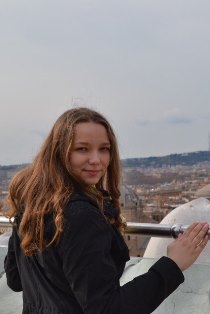
Vasilevskaya Yana
Geophysical team. Student of the Department of Seismometers and geoacoustics, the Faculty of Geology, the Lomonosov Moscow State University
I am a first-year student of geological faculty of Lomonosov Moscow State University of department of seismometry and geoacoustics. Now it is difficult to me to speak about the geological questions interesting me, but the marine seismic exploration and various processes happening under thickness of water are interesting for me. Besides study I try to lead active lifestyle: I am fond of figure skating and mountain skiing, also I like to travel around the different countries of the world. Earlier I had not to be in sea expeditions, the forthcoming will be for me the first.
On Lake Baikal I will be for the first time therefore to share in such expedition is a unique opportunity to get good experience in the marine geophysics which will help me with further tutoring at university and future profession. I hope that after this scientific expedition I will have many unforgettable memories!
Dmitry Vnuchkov
Geochemical team. Student of the Department of Lithology and Marine Geology , Faculty of Geology, Lomonosov Moscow State University.
I am a 3rd grade student of lithology and marine geology department of the MSU. I am also a member of the university student men’s rugby team. I’m interested in sport, travelling, I am fond of animals, especially dogs.
I have never been to the sea expeditions before. I have always dreamt about the Baikal lake, I have read a lot about this unique place, but I’ve never visited this lake. I’m sure the expedition will be both tense, but interesting and educational.
I hope to get lots of knowledge and awareness about related professions, to apply my knowledge in practice, to collect enough material for my scientific articles as well as for my course work.
I decided to participate in the expedition because it is the unique chance to work in the same team with highly qualified specialists of different scientific branches, to find new experience and try to get practical knowledge, skills and habits which I will be able to apply in my future work.
Bulanova Irina
Geophysical team. Student of the Department of Seismometers and geoacoustics, the Faculty of Geology, the Lomonosov Moscow State University
I am a student of the Geological Faculty of Moscow State University Department of Seismometry and Geoacoustics. I like traveling very much, especially in the quiet nooks of Russia, also I like mountain tourism. It is a great pleasure for me to communicate with people who do not stand still and constantly strive to expand their horizons, learn new things and share their experience with others. This year I visited the training practice of marine seismic exploration in the White Sea, after which I became interested in studying marine research. Baikal is a place where I dreamed to go since childhood. And this expedition is not only the fulfillment of a small dream, but also the opportunity to communicate with specialists in the field of geology and geophysics, to obtain practical skills and work experience. I hope that the expedition will be interesting and saturated and will remain in the memory of each participant for a long time!
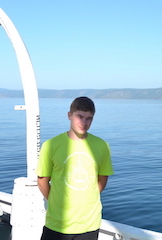
Lyovochkin Andrey
Geophysical team. Student of the Novosibirsk State University.
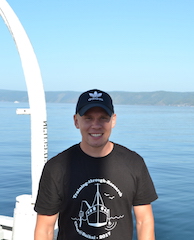
Schapov Vladimir
Sedimentological team. Student of the geological faculty of Polytechnic institute of Irkutsk
My name is Schapov Vladimir. I am 23 years old. I am studying at geological faculty of Polytechnic institute of Irkutsk. I have been in scientific cruise in the lake Baikal with Japanese specialists in 2015. That time we were studying gas hydrates. Now I am very glad to have a chance to take part I Class@Baikal-2017 expedition. During this expedition I helped geologists to take gravity cores, describe columns.
Here I’ve got useful skills and found new friends. Most of all I liked traditional evening lectures about different geological processes. You may always get the answer to all interesting questions.
I want to thank everybody for the ability to take part in this expedition. Especially I am very grateful to the members of the ship crew.
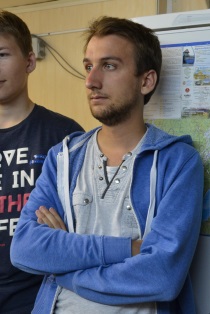
Lucas Bataillard
Student, UniSalle, Beavuis, France
I’m a French student of the school « UniLaSalle » in Beauvais, north part of France. This school is specialized in Earth and Environment Science. I focus my study on geology, especially on big scale sedimentary structures. What I like the most in geology is to understand the evolution of a large scale structure and to use computering to modelise it. I plan to specialize myself in geothermy, or in oil and gas exploration. In my free time, I enjoy playing music, going to festivals, and I try to travel as much as I can all over the world. This is my first off-shore geological expedition. I’ve already done many on-shore expeditions in the Pyrenees, the Alpes and Massif Central, which were always great experiences. I’m lucky to be part of this cruise, as it is very new for me, and I think I will enjoy it as well. This kind of expedition is a way for me to discover another kind of work in the world of geology. During this expedition, I have to work on GIS and seismic data in order to understand the influence of the geological structure on the gas hydrates in the lake. I help other members of the cruise with cores sampling too. I’m very happy to be part of this expedition, and to be able to learn more about geology and data acquisition in such a nice place like Lake Baikal with professional geologists.
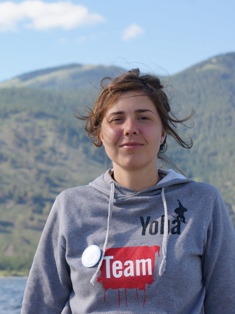
Nesmeyanova Ekaterina
Media-group


